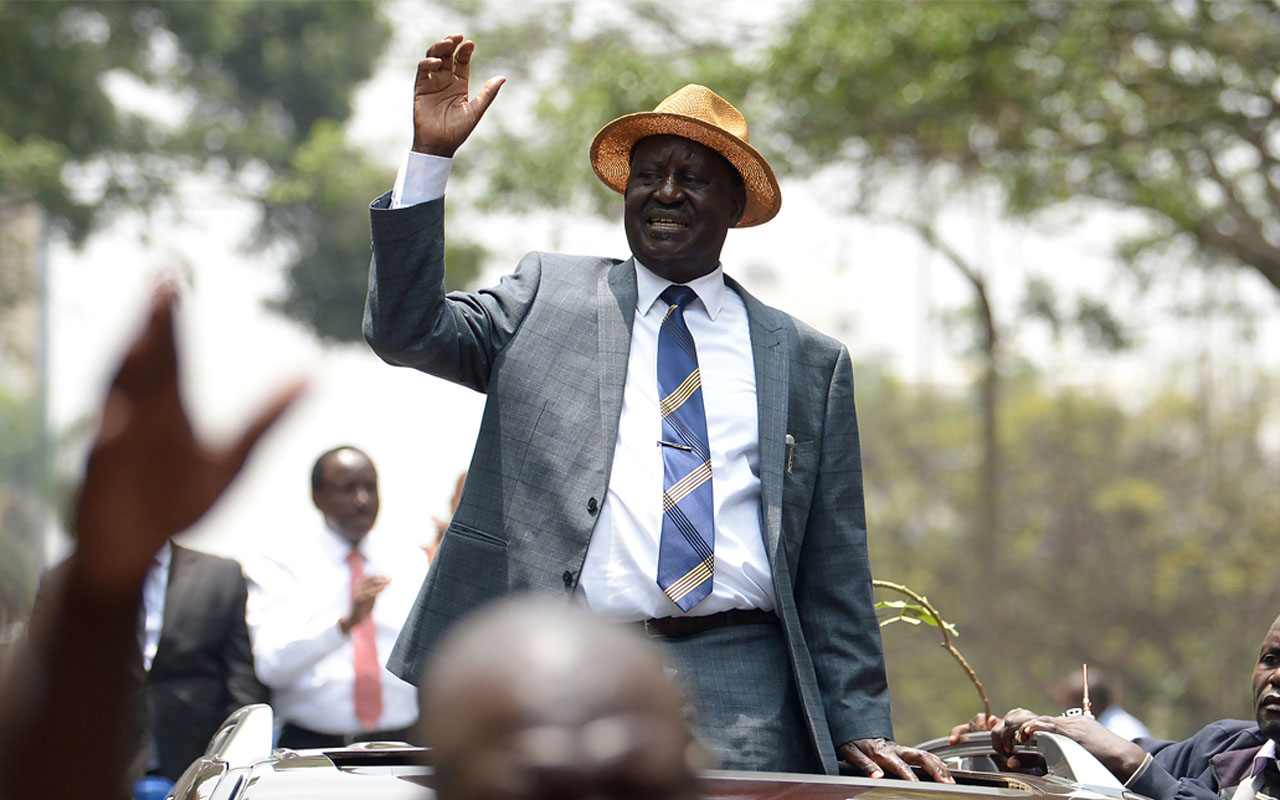
In what some have called a coup, Kenya’s opposition leader Raila Odinga was hastily sworn in in a mock ceremony as the “people’s president” by two lawyers in the presence of a sizeable crowd.
NAIROBI, KENYA – JANUARY 30: Opposition presidential candidate Raila Odinga takes an oath as president during a mock ‘swearing-in’ ceremony on January 30, 2018 at Uhuru Park in Nairobi, Kenya. The opposition held the ceremony to protest the results of the controversial 2017 elections, which lead to current President Uhuru Kenyatta being named to a second term. (Photo by Andrew Renneisen/Getty Images)
NAIROBI, KENYA – JANUARY 30: Opposition presidential candidate Raila Odinga takes an oath as president during a mock ‘swearing-in’ ceremony on January 30, 2018 at Uhuru Park in Nairobi, Kenya. The opposition held the ceremony to protest the results of the controversial 2017 elections, which lead to current President Uhuru Kenyatta being named to a second term. (Photo by Andrew Renneisen/Getty Images)
The brief January 30 ceremony took place in central Nairobi’s largest park. But this was not a coup. Odinga did not purport to assume the constitutional office of the president held by his rival Uhuru Kenyatta. As some of his supporters have argued, this swearing-in was largely symbolic.
Odinga’s vocal support mirrors the ethnic affiliations of his opposition coalition partners – mostly the Luo, Luhya, Kamba and a number of tribes from the country’s coastal areas. Ranged against them are Kenyatta’s Kikuyu and Deputy President William Ruto’s Kalenjin ethnic groups. These two ethnic groups have produced all the country’s presidents since independence 54 years ago. The Kikuyu, who have produced three of the last four presidents, are the most populous ethnic group in Kenya. They are followed by the Luhya, Kalenjin and Luo.
Grievances over land between the Kikuyu and Kalenjin have previously sparked violent clashes, including post-election carnage in 2007 and 2008. But rattled by International Criminal Court charges over the violence, Kenyatta and Ruto closed ranks to win the next election in 2013.
The two ethnic groups have been accused of exclusionary politics due to their superior numbers, wealth, state power and
and impunity.



